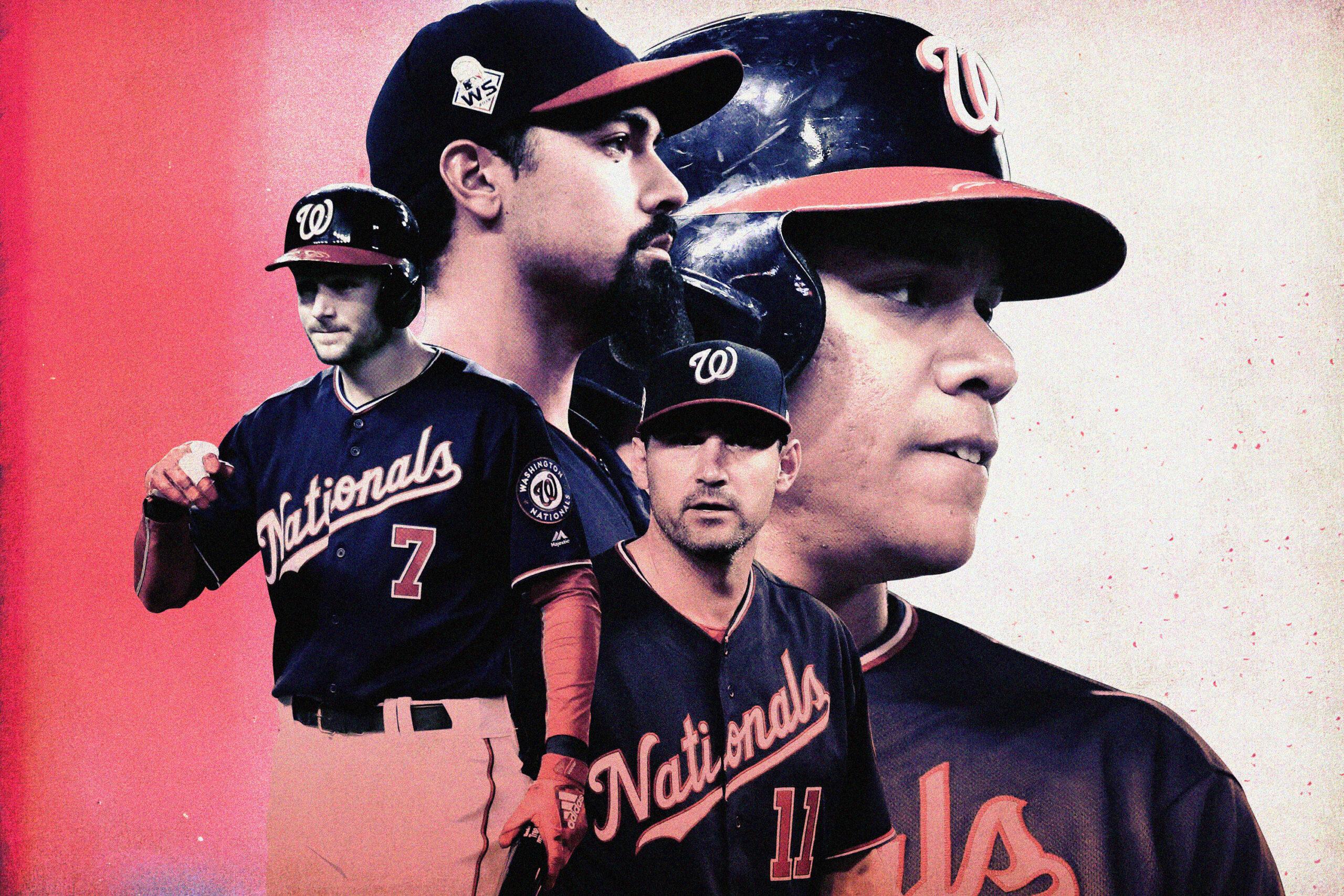
In all my sports-going life, I have never heard a sound like the one that followed Astros third baseman Alex Bregman’s grand slam in Game 4 of the World Series.
The Nationals were already down 4-1 Saturday and had been in a hole since the game’s first inning. Yes, the Nats had lost the previous night’s effort at Nats Park, their first home game of their very first World Series. They were losing some of the sheen of invincibility they earned from stealing games 1 and 2 of the series in Houston. And fine, OK, you may have heard of the Fernando Rodney Experience, and known that baseball’s oldest active player and a member of the worst bullpen in baseball facing a bases-loaded jam was, as they say, not what you want.
But you could write these things off. Heading into Game 4, the Nats were still leading in the World Series—the World Series!—and, hey, it didn’t have to be a sweep. Don’t get greedy!
And then it happened. Bregman’s blast to left field produced a whoosh as the majority of the sellout crowd went suddenly silent, the quiet punctuated by only the odd R-rated jeer of despair. A three-run deficit was surmountable. A seven-run deficit meant a loss, meant a tied series, meant that this thing that seemed so real, so close, might just evaporate after all. The sound was a crowd turning inward, 43,000-odd servings of good cheer curdling all at once. Just hours before, the stadium was stuffed with glee, full of families all in red and Washingtonians who’d waited 86 years, or at least some portion of 86 years, for the World Series to come back to the District of Columbia. Now there was something much darker. You might as well have stuck a pin in one of the shark-shaped balloon hats festooning many a head and let it whiz away and out toward the Potomac River.
The Nationals lost that game, 8-1, and then Sunday’s, too, in equally decisive if less cinematically gut-wrenching fashion, and moved from a rollicking 2-0 World Series lead to a grim 3-2 deficit. They now return to Houston for Game 6 and—if necessary—Game 7. If the Nats sailed into D.C. after taking the World Series’ first two games off the prohibitive favorite, they now limp back to Texas with the Astros, the best team in baseball through the regular season, just a solitary win at home away from their second World Series championship in three years. A crowd looking for that dynasty awaits them.
After Sunday’s 7-1 loss, the Nats’ two most reliable bullpen arms, Daniel Hudson and Sean Doolittle, separately described the rout in D.C. in similar terms: Hudson said that Washington “got our teeth kicked in a little bit”; Doolittle said that his team had been “popped in the mouth.” Together, the pair combined for 2 2/3 innings of D.C.’s third lousy night in a row. Hudson gave up the last three of Houston’s seven runs; the other four came from a pair of two-run home runs surrendered by Joe Ross, who was called in to pitch after Max Scherzer was scratched due to neck tightness—a disaster in and of itself that sets up Scherzer, pending recovery, to start Game 7, should his team make it that far.
But the bigger problem throughout the Nats’ dreadful weekend was the question of where the team’s offense went. After beating the Astros by an aggregate 17–7 through the series’ first two games, they mustered just a single run in each of the three that followed. “We just couldn’t get anything going against Gerrit,” first baseman Ryan Zimmerman said after the game of the Astros’ ace, Gerrit Cole. Fair enough, considering Cole is one of the most reliably fearsome pitchers in the game—but then again, the team rang him up for five earned runs on eight hits in their last encounter, just five days previous.
The Nationals have, of course, yet to lose any of the three elimination games they’ve faced so far this postseason. The defining narrative of the 2019 Nationals, one proudly adopted by players, team leadership, and fans alike, is that this is a team that thrives with its back against the wall, that the 19-31 start to the season christened enduring underdog status. If the Nationals are indeed underdogs now, facing two do-or-die games on the road—well, so were they one week ago when they first arrived in Houston, starting the World Series as the least-favored contender in 12 years. So were they in Los Angeles, when Clayton Kershaw entered in relief with a two-run lead to close out Game 5 of the NLDS, and so were they at Nats Park, when lights-out closer Josh Hader entered the wild-card game intent on protecting the Brewers’ two-run, eighth-inning lead. And each time, they stuck with the slogan they adopted after that slow start: They stayed in the fight and won.
In his press conference before Game 5, Astros manager A.J. Hinch talked about the fickleness of the postseason, calling elimination games “a coin flip.” Hinch was referring to Houston’s Game 7 experience in 2017 when the Astros won both the ALCS and World Series in seven games, but the same applies now to the Nationals. “Winning’s hard,” Hinch said. In the playoffs, it’s sometimes unpredictable, too.
“I don’t know if you realize how small of a window that every single one of those hits is from either being a homer, a hit, another out, a popup, a strikeout,” shortstop Trea Turner told reporters after the game. “We’re talking about hundredths of seconds, if not millimeters on the barrel.” Sometimes it works out, Turner said, and sometimes it doesn’t.
But if the Nationals hope to bring the Commissioner’s Trophy home, they will need to find the right window, however tiny it is. They often have this year: They finished out the once-dismal 2019 campaign with 93 wins, and gilded their October with both thrilling come-from-behind wins and more decisive victories, as in the team’s NLCS sweep of St. Louis. For the last three games against Houston, however, they could find nothing at all, and now all it will take is one more almost to end their season. Shortstop Turner went 1-for-14 in Washington’s three losses to the Astros; third baseman Anthony Rendon, the team’s regular-season WAR leader and the 2019 MLB leader for RBIs, failed to drive in a single run. First baseman Zimmerman and left fielder Juan Soto, responsible for so many of the offensive heroics that brought the Nats to this point, offered little to remember this time around. If the Nationals have any chance at all, it’s in the lineup that was so meek this weekend finding its footing once again.
Late Sunday night, after the last fans had left Nats Park and players in the clubhouse were finishing signing one another’s end-of-season commemorative jerseys and packing up their bags for one last time, a Nationals staffer walked steadily through the stadium’s main concourse, leaf blower roaring in his hand. Before him, leaves and peanut dust and receipts and empty water bottles swirled—a night’s, if not a season’s, worth of baseball detritus blowing swiftly away.

